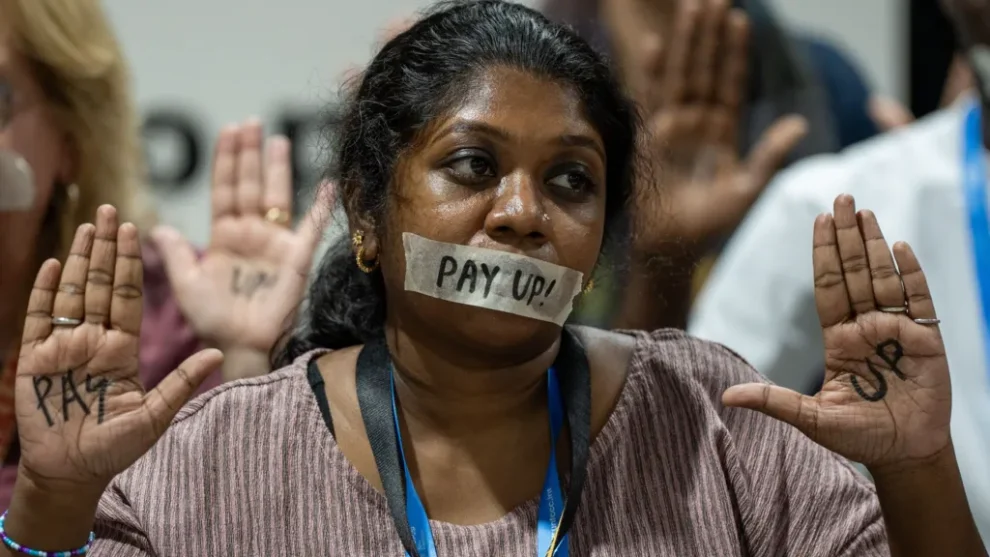A landmark deal has been reached at the UN climate summit COP29 in Azerbaijan, with richer countries promising to raise their funding to help poorer countries combat climate change to a record $300bn (£238bn) a year. However, the agreement has been met with criticism from the developing world, who argue that the pledge falls short of their demands.
The talks, which ran 33 hours late and came close to collapse, resulted in a deal that promises to triple the money going towards preparing countries for climate change. Historically, only 40% of the funding available for climate change has gone towards this. The funds pledged are expected to help poorer countries transition away from fossil fuels and invest in renewable energy such as wind and solar power.
Despite the criticisms, the deal marks a significant recognition that developing nations bear a disproportionate burden from climate change, despite having contributed the least to the problem. The head of the UN climate body, Simon Stiell, acknowledged that the agreement was far from perfect, stating that “no country got everything they wanted, and we leave Baku with a mountain of work still to do.”
The deal has been met with mixed reactions, with some critics arguing that the pledge is insufficient to address the scale of the climate crisis. The African Group of Negotiators described the final pledge as “too little, too late”, while the representative from India dismissed the money as “a paltry sum”. Climate charities have also criticised the agreed deal.
Key Takeaways from COP29:
- Record Funding Pledge: Richer countries have pledged to raise their funding to help poorer countries fight climate change to a record $300bn (£238bn) a year.
- Tripling Climate Change Funding: The deal promises to triple the money going towards preparing countries for climate change.
- Transition to Renewable Energy: The funds pledged are expected to help poorer countries transition away from fossil fuels and invest in renewable energy.
- Criticisms and Concerns: The deal has been met with criticisms from the developing world, who argue that the pledge falls short of their demands.





Add Comment